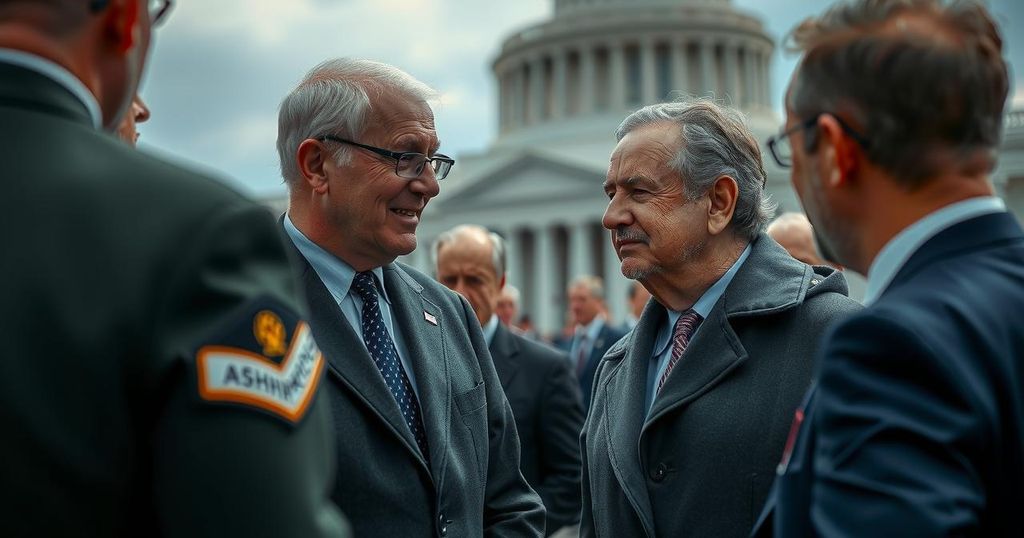Biden’s European Diplomacy: A Balancing Act Amidst Imminent Elections and Global Conflicts

President Biden’s trip to Germany marked a pivotal moment in advocating for Ukraine’s support and seeking peace in the Middle East, overshadowed by the potential implications of the upcoming 2024 election. Meeting with European leaders, Biden emphasized the necessity of transatlantic unity amid concerns of a possible Trump presidency that could alter U.S.-European relations. Notably, he called for a cease-fire in Gaza following significant military developments involving Hamas, showcasing a broader aim for stability in conflict zones.
In what may be his final European visit as President, Joe Biden traveled to Germany amidst pressing global issues, notably the United States’ continued support for Ukraine and ongoing conflicts in the Middle East. Biden convened discussions with Chancellor Olaf Scholz of Germany, and is expected to meet with President Emmanuel Macron of France and Prime Minister Rishi Sunak of the United Kingdom, focusing extensively on the war in Ukraine and the situation in Gaza. This trip is underscored by the backdrop of the impending 2024 presidential election, as uncertainty looms regarding U.S.-European relations should former President Donald Trump return to office. Trump has historically maintained a strained rapport with European allies, raising concerns about the future of transatlantic partnerships. During a ceremony in Berlin, President Biden received accolades for his contributions to international diplomacy, while German President Frank-Walter Steinmeier emphasized the vital nature of the transatlantic alliance, urging Europeans to remember America’s indispensable role as their ally. Biden’s discussions also included a call for a cease-fire in Gaza, following significant developments in the region. He expressed that the death of Hamas leader Yahya Sinwar represented an opportunity for renewed dialogues surrounding peace. Ultimately, Biden’s visit reflects not only his administration’s commitment to international cooperation but also the intricate connections between domestic electoral outcomes and global diplomatic initiatives.
As President Biden embarks on his visit to Germany, he navigates the complexities of global politics, particularly the ongoing war in Ukraine and the conflict in the Middle East. With the 2024 presidential election approaching, there is significant anxiety regarding the continuity of American foreign policy, particularly in relation to transatlantic alliances. Former President Trump, a prominent figure in the opposition, has historically challenged the principles of these alliances, causing concern among European leaders about their future stability and support. Biden’s trip is not merely a demonstration of solidarity with European partners but also an effort to consolidate support for diplomatic solutions to pressing conflicts, such as the recent escalation in Gaza following the killing of Hamas leader Sinwar.
In conclusion, President Biden’s visit to Germany highlights the interconnected nature of U.S. foreign policy and the upcoming presidential election. As Biden advocates for continued support of Ukraine and seeks to broker peace in the Middle East, the future of transatlantic relations hangs in the balance, particularly with the possibility of a Trump resurgence in American politics. The visit symbolizes a commitment to international cooperation in the face of uncertainty and reflects the urgent need for collaborative approaches to global peace efforts.
Original Source: www.usatoday.com






